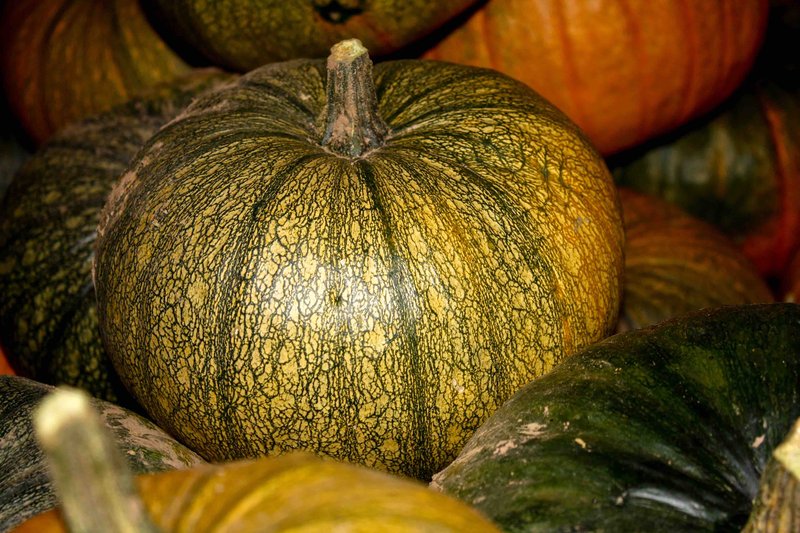Back to December 2016 Newsletter
Preserving the ‘Green Gold of Styria’

Angie Koch
The New Brunswick growing season is short. This makes growing winter squashes for seed a somewhat challenging endeavour, limited to shorter-season varieties and a willingness to take a risk that seed won’t develop fully before the cold weather stunts fruit development. Greg Wingate and Janet Wallace of Mapple Farm have been offering a number of regionally adapted squash varieties through their seed catalogue, and Jocelyne was interested in adopting one of them into the library to ensure its protection.
|
Adopt a heritage seed variety into our Seed Library in your loved one’s name. Pick a favourite, or ask us to pick a top priority on your behalf. |
She settled on the Styrian pumpkin – a winter squash filled with hulless seeds perfect for eating as pepitas or pressing for oil. Writes Janet, “To get pepitas, you can grow pumpkins and hull the seeds – a very complicated and labour-intensive method unless you have a commercial dehuller. The second, and much simpler way, is to grow pumpkins that have hulless (naked) seeds. More than two hundred years ago, a mutation happened in a pumpkin patch in Styria, a region of Austria. The unusual pumpkins had seeds without hulls. Since then, generation after generation of Styrian farmers saved the seed from the pumpkins with the thinnest hulls, largest seeds and greatest number of seeds. The result: Styrian pumpkins now have large cavities filled with hulless green seeds containing 40-50% oil. The crop can produce up 1000 lbs/acre of dry seeds.”
Developed in the relatively cool climate of Austria, these pumpkins are well suited for growing in New Brunswick and other areas of Canada. In fact the oil and linoleic acid content of the seeds are highest when grown in cooler conditions.
Did you know you could produce pepitas in your back yard? Stories like this capture why we believe our Seed Library is important. Niche crops adapted to particular growing environments carry important genetics which get lost in mass production of seed that is generalized for success in world markets. Food crop biodiversity is our single most crucial tool to adapt our food systems to changes, and improve the odds that they can withstand threats and we can maintain a diverse diet. Our seed library conserves many rare varieties not carried by commercial seed companies, and backs up regional varieties like those sold by Mapple Farm and other small-scale seed producers.
Inspired? You can help. Volunteer to grow out seed to refresh our Seed Library supplies, or protect a variety for future generations by donating to adopt it. Adoptions make great gifts – we’ll even send you a card.
**
Angie Koch is the seed library coordinator at Seeds of Diversity.
Photo: Styrian pumpkin, Janet Wallace.
Not yet a member?
An annual membership to Seeds of Diversity gives you access to our seed exchange, seed grow-out programs, and our online news.

We depend on donations to do our work.

Thank you for your support!
